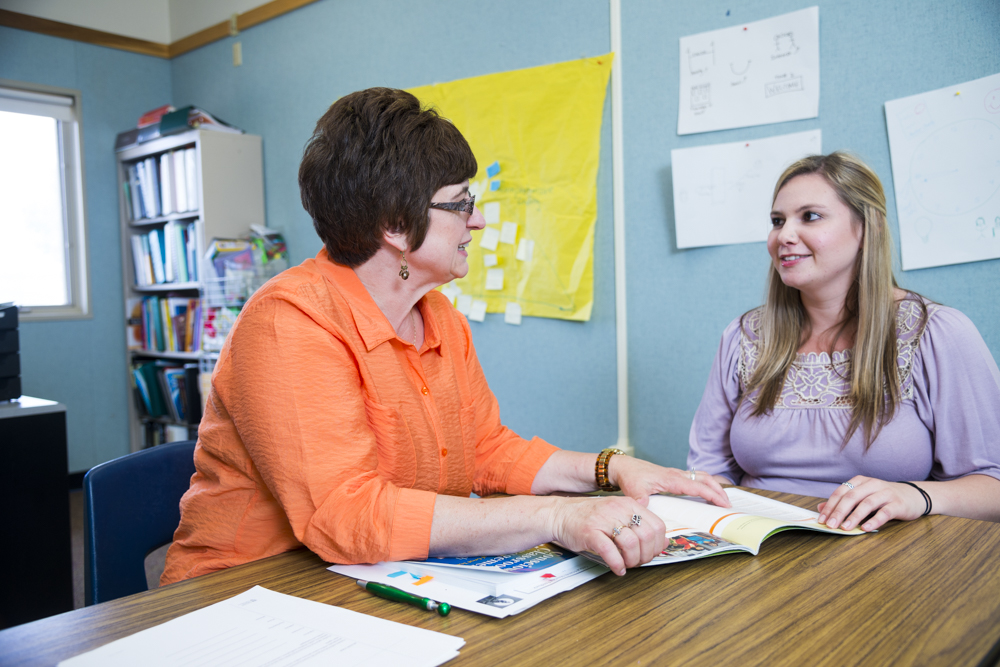April 19, 2016
Why You Need to Reach Out to New Teachers…
…and how to do it. Remember your first year? Here’s how you can mentor a new teacher to help them succeed.
My first year of teaching, the veterans warned me. They said it would be hard. They told me I’d get overwhelmed. They said I’d cry in my car.
It was. I did. I bawled.
No matter how prepared we are, the first year is markedly rough for many of us. While there are definite peaks and victories, finding our footing during this time comes with its fair share of bumps and bruises. The good news is that it makes us each uniquely qualified to help those that come after us.
You’ll spot them in that first staff meeting; they’re the ones with wide eyes and scared smiles. You’ll run into them at the copy machine; they’re the ones who don’t know their code. You’ll get paired with them in staff development; they’re the ones writing down everything.
There’s so much you can teach them — and we’re talking about more than how the staff cafeteria serves the good pizza on Thursdays or how to sweet talk the secretary into assigning you a stellar parking spot, though those are vital tidbits. Here’s how to mentor your campus’ newbies — and gain new friends in the meantime.
- Be the one. Research shows that one of 10 new teachers don’t last through the end of the year — but first-year teachers who have someone they view as a mentor are more likely to make it. If your school already has a mentor and induction program in place, contact administration to get involved. If they don’t, or it’s outdated or ineffective, join the committee and make the needed changes happen. Taking the initiative here puts you in the driver’s seat and helps you stand out as a team player.
- Give them a dose of healthy perspective. I can remember drowning in my own extreme thinking my first year. If I botched a lesson plan or made a management mistake, I internalized it for days or weeks, believing that I was damaging these poor children entrusted to my care. It’s easy to forget that you are a trained professional who can handle curveballs and learn from mistakes. Take the pressure off your new colleagues by relaying this to them. One of my favorite things to tell new teachers is that many of the kids I taught my first year are well into their 20s now and have found me on social media and friended me. And you know what? None of them seem scarred by those mistakes I made. They don’t remember that I didn’t get those essays back to them in two days or that I had a hard time with technology. They do remember that I cared about them and made them feel loved.
- Give generously. We’ve all known teachers who guard the lessons they’ve created with their lives. They don’t want to share — and whether it’s because they are competitive and want to hoard student success within their own four walls or because they don’t want to make it easy for teachers that didn’t put in the work designing their miracle materials, they’re SO wrong. Don’t be that teacher. New teachers need excellent materials (both to save their sanity and to inspire their own cool ideas) and it should be gifted to them by neighboring teachers with reckless abandon. If you’ve got something you can give them, even if you teach something different and all you can offer is your (fabulous) PowerPoint on fire drill protocol or an old box of decorations you no longer use, give it freely. New teachers have very full plates and all sorts of pressure on their shoulders. A thumb drive simply titled “Teacher Secret Sauce” filled with printables could be their lifesaver.
- Know the way. Being a wealth of information to a new teacher doesn’t mean you have to be an expert at everything — but you can point them in the right direction when they need help. Encourage new staff members to talk with administration, department chairs, and level leaders. Nudge them to actively seek help when they need it and remind them that you’re rooting for them.
- Be a friend. There’s no one more loved than the surprise coffee fairy — unless you’re the surprise chocolate fairy, perhaps, or the “Surprise! I laminated these for you” fairy. You catch my drift. Whether it’s a lunch buddy, a shoulder to lean on, or someone to compare fantasy league scores with, be a friend outside the connvarchar(max) of work.
New teachers need feedback, empathy, and support — and lots of it. Care for and foster their growth, help them see how they are more and more able to meet the needs of their students and profession. Overall, look out for the new guys — they become the old guys, and this is the start of a lasting friendship.
Heather Sparks is a writer, educator, and mom of two. An Arizona native, she holds a bachelor’s degree in secondary education and a master’s degree in gifted education from Arizona State University.











